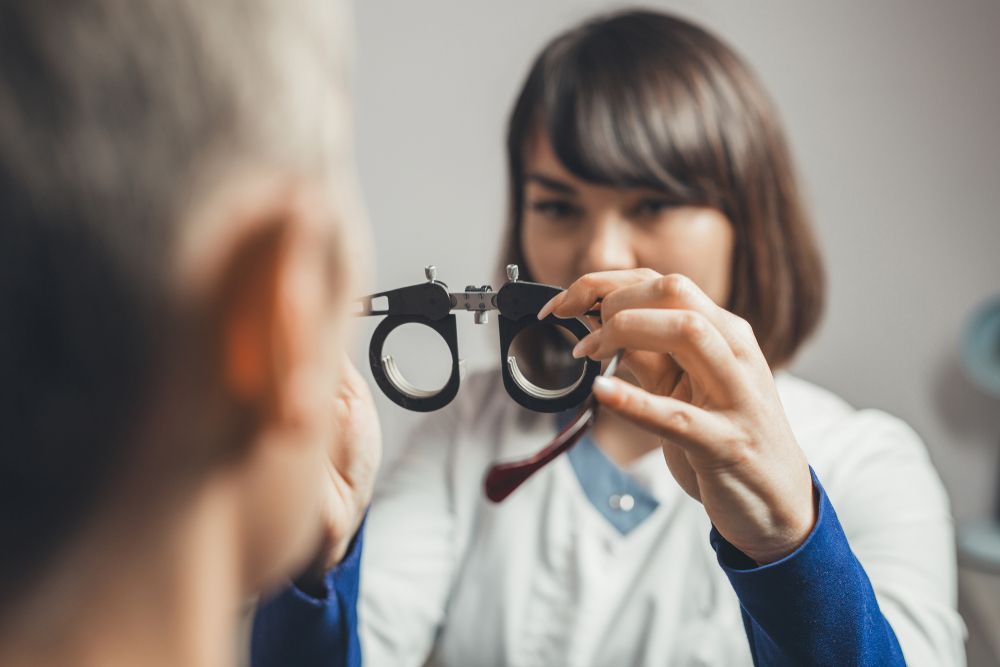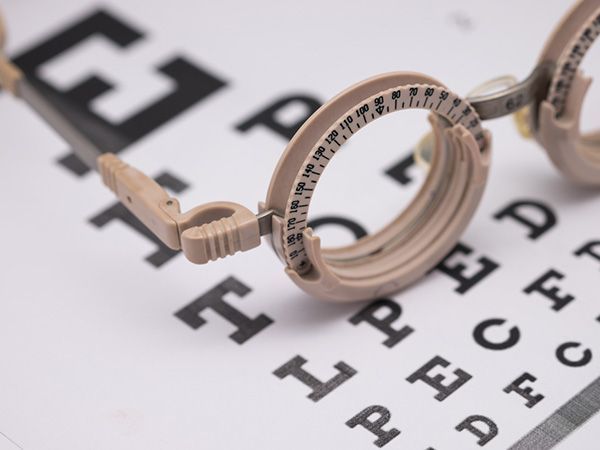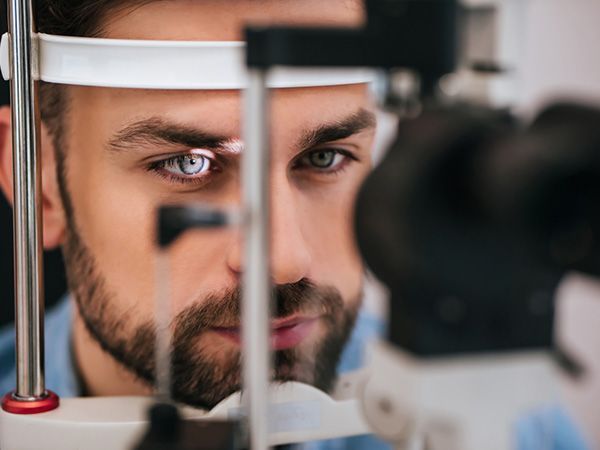Diabetic Eye Exam

A diabetic eye examination is one of the most comprehensive eye exams that are offered. Not only do we check your potential glasses or contact lens prescriptions, but we delve into your medical history and perform dilation in order to make sure you have no retinopathy, vascular or lens changes to your eye secondary to diabetes. An annual diabetic eye exam also helps your primary care provider or diabetes specialist ensure that you are on the right course with your medicines, so that blood glucose is better controlled and the risk of diabetic ocular side effects--and other systemic side effects--decreases.
Learn More
Diabetes is a systemic health condition in which there are elevated blood glucose levels in the body, often for a long period of time. There are two main types, Type 1 (insulin dependent) and Type 2, in addition to gestational diabetes. Type 1 is more of a juvenile onset type where the body cannot produce insulin very well to combat sugar levels, and so insulin injections are usually required as treatment from an early age. Type 2 is more adult in onset, where insulin production in the body is minimized or produced in small quantities and is not enough to combat the high blood sugar levels that have built up with time. First line treatment for Type 2 usually starts with some sort of oral medication. Gestational diabetes is a type where blood sugars were high during pregnancy for a woman, and usually resolves after the baby is delivered.
Diabetic retinopathy and cataracts are two major side effects to diabetes in the eye. People with diabetes are more risk for earlier cataract development and removal compared to their peers. Cataracts occur when the lens inside your eye becomes less transparent ("cloudy") over time. It is a normal age related occurrence in most people for cataracts to progress to the point of needing surgery to remove, but diabetics tend to need them removed early. Retinopathy occurs when the retinal blood vessels at the back of your eye start to leak because of the constant fluctuations in blood glucose over time. Longterm diabetics of 10+ years are more at risk for developing this, but if blood glucose is not very well controlled with treatment from your primary care provider you can develop retinopathy at any time. Dilation as part of your comprehensive eye exam will help us to detect if you have diabetic retinopathy or cataracts related to diabetes by increasing your pupil size and letting the whole lens and retina be in better focus.
For even more information, see the AOA link regarding diabetic retinopathy here: https://www.aoa.org/healthy-eyes/eye-and-vision-conditions/diabetic-retinopathy?sso=y





